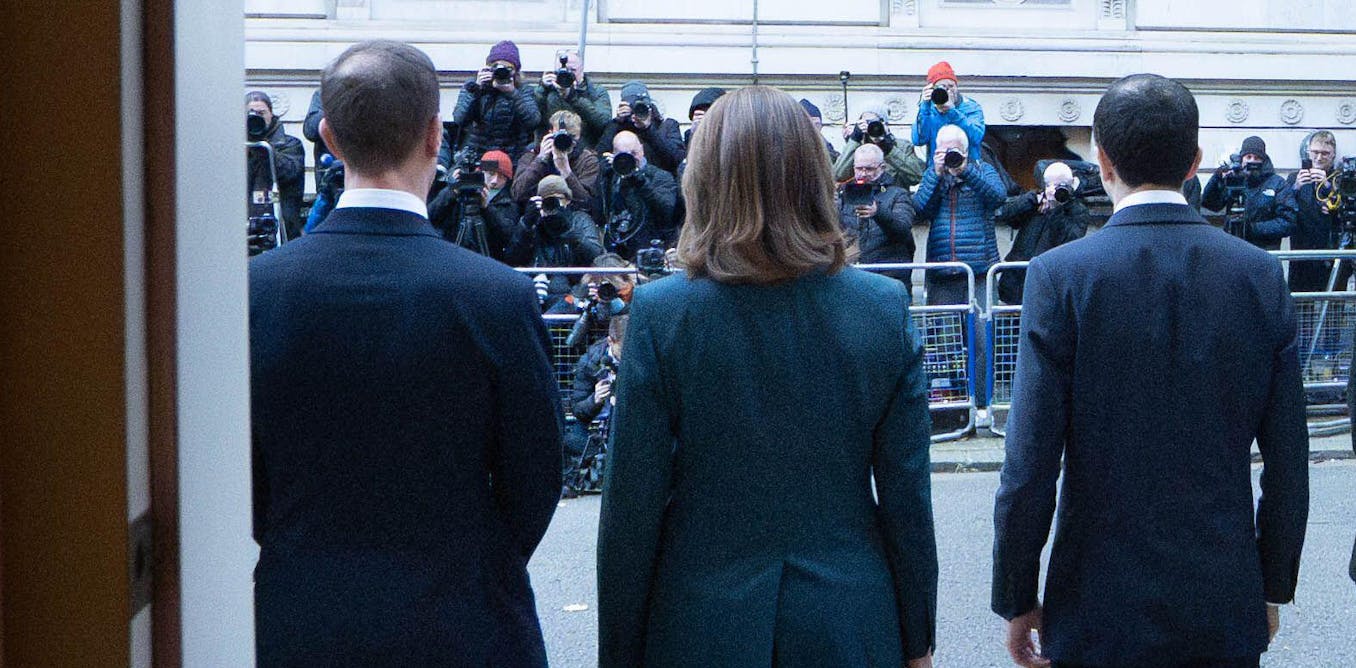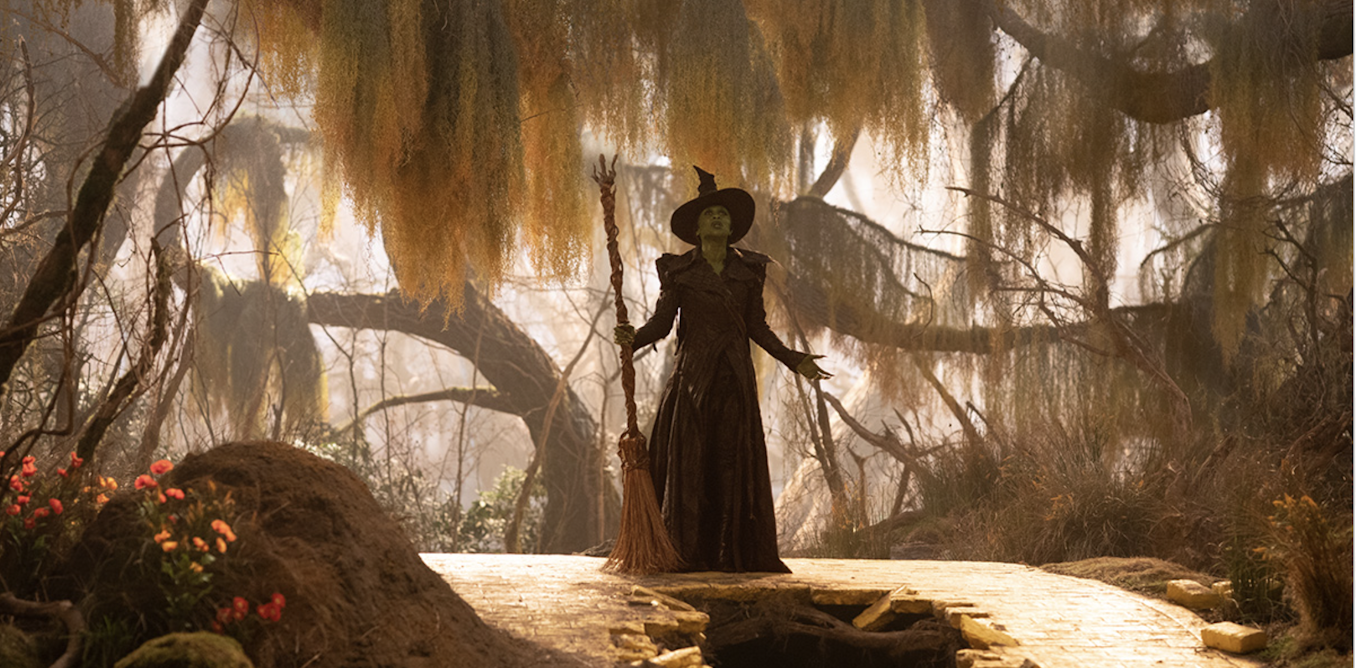In the 21st-century, it’s become horrifyingly normal for terrorist atrocities to play out over live visual media. Countless millions watched the fall of the twin towers on television in September 2001. The 2019 Christchurch mass murderer live streamed his assault on Facebook Live. Hamas commandos on October 7 wore bodycams.
Director Tim Fehlbaum’s new film September 5 vividly recreates the historical moment when this relationship arguably snapped into sharp focus for the first time. The US network ABC’s live coverage of the Black September attack on the Israeli team at the 1972 Munich Olympics introduced the term “terrorist” to many viewers for the first time.
The Munich attack unfolded over a single day and culminated in the murder of all nine Israeli hostages. Two athletes were also killed during the initial attack on their residence, as were all of the Palestinian gunmen during a firefight with West German police.
There have been numerous film and television treatments of the Munich attack. One of the best-known is Kevin Macdonald’s Oscar-winning 1999 documentary One Day in September, which prosecutes the negligence and incompetence of the German authorities. Another is Steven Spielberg’s drama Munich (2005). A heavily fictionalised account of the Mossad reprisals against Palestinians allegedly associated with the Munich attack, it includes a detailed and graphic flashback of the massacre itself.
Fehlbaum opts against providing another synoptic overview of this well-known sequence of events. Instead, September 5 focuses exclusively on the ABC Sports team whose assignment switched in an instant from broadcasting the achievements of record-breaking athletes to covering the unfolding crisis and its bloody denouement.
Running a tense and taut 94 minutes, the drama unfolds almost entirely within the cramped, sweaty confines of the ABC control room. Located adjacent to the athletes’ village, the sports reporters must suddenly adapt to documenting actual, not sporting, disaster. We share their perspective on the unravelling catastrophe, from a distance, trying to cut through the chaotic and confused stream of conflicting information, all filtered through the cumbersome broadcast technologies of the time.
Decades before smartphones and the internet, ABC Sports chief Roone Arledge (Peter Sarsgaard) and inexperienced director Geoffrey Mason (John Magaro) battle myriad challenges. They haggle with rival networks for scarce satellite time (live satellite transmission was used for the first time at the Munich Games). They struggle to manoeuvre a weighty studio camera rig outdoors to gain a precious live feed on the apartment where the athletes are being held hostage. They even have to turn around magazines of 16mm film (in 1972 still the standard format for TV news reporting) in just minutes from negative to broadcast-ready clips.
The meticulous period recreation, low-light filming and handheld camerawork lend the film an immediacy and a grainy intensity. It recalls classic journalistic 1970s thrillers such as All the President’s Men (1976).
The unit transforms from a hardworking but relaxed outfit choosing whether to cover water polo or “soccer” to a team covering a grimly determined band of brothers (and one crucial sister, German translator Marianne, played by Leonie Benesch). Overcoming the odds to pursue the story to its bitter end, the story takes on the quality of a classic platoon movie.
The film’s real focus is not so much the technical, but rather the novel ethical challenges the team must confront and decide, live and on-air. The young Peter Jennings (an uncanny impersonation by Benjamin Walker) is their sole trained news correspondent. But the sports crew need to parse the complex contexts of the conflict for a home audience far less steeped than today’s in Middle Eastern geopolitics.
At the same time, they must fend off the intrusions of West German authorities increasingly panicked by the unfolding PR catastrophe, as Jews once again fall victim on German soil, less than three decades after the Holocaust.
Looking for something good? Cut through the noise with a carefully curated selection of the latest releases, live events and exhibitions, straight to your inbox every fortnight, on Fridays. Sign up here.
Meanwhile, it becomes increasingly clear that the Palestinian guerrillas have chosen the Olympics precisely because of the opportunity to stage their cause to a global audience. Hence, the broadcasters are inescapably complicit in the crisis. They’re not simply reporters, but participants.
In the film’s highest stakes sequence – and a moment of head-spinning reflexivity – the team become aware the terrorists are watching their live broadcast. It means they are able to see the German police manoeuvring into place as they ineptly prepare a rescue.
Predictably, the pressure to nail the story in an era of scarce information collides with the ethical imperative to get the story right. This leads to the film’s grim climax, where Arledge initially directs anchor Jim McKay (seen only in archive broadcast footage) to repeat the German authorities’ claim that the hostages have been successfully rescued. Only to have to go back on his words when the awful truth emerges and McKay is forced into his famous declaration: “They’re all gone.”
In the aftermath, the reporters must prepare for another day’s work, while wondering to what degree they may have contributed to the disaster. September 5 is all the more powerful for leaving us, like its protagonists, without ready answers to the weighty questions it so deftly raises, and which have become only more pressing over half a century later.

The post “tense and taut drama vividly recreates the Munich massacre” by Barry Langford, Professor of Film Studies, Royal Holloway University of London was published on 02/05/2025 by theconversation.com




































Leave a Reply